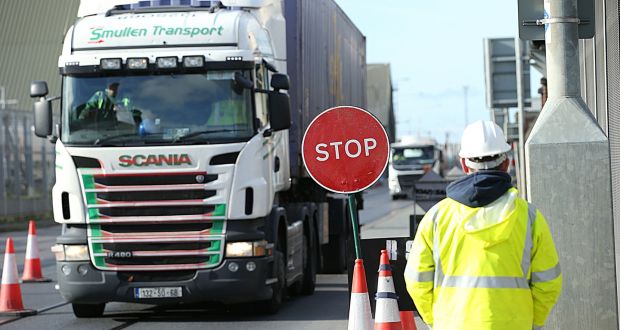It has been confirmed that there has been a (further) postponement to the introduction of the remaining border controls for imports into the UK from the EU. The Minister responsible, Jacob Rees-Mogg, issued a statement to the House of Commons on 28th April which set out the reasoning behind these delays and the UK Government’s plans for the future operation of its border controls.
Mr Rees-Mogg claimed that introducing additional controls from July would have replicated the controls that the EU applies to its global trade which would have meant ‘complex and costly’ checks which would have to be altered in the future when the UK implements its transformation programme (including greater digitisation) for the operation of its border controls with both the EU and non-EU countries.
This means that no further controls on EU goods (notably agri-food products) will be introduced in 2022. Instead, the UK Government plans to publish a Target Operating Model in the autumn that will set out its new regime of border import controls. Thereafter, the new import controls regime would be introduced by the end of 2023. In effect, the following controls will now not be introduced:
- A requirement for Sanitary and Phytosanitary (SPS) checks on EU imports to be done at a Border Control Post (BCP) (currently done at destination)
- A requirement for safety and security declarations on EU imports
- A requirement for further health certification and SPS checks for EU imports
- Prohibitions and restrictions on the import of chilled meats from the EU
As alluded to in previous articles, it is no surprise that there is a further delay to the implementation of border controls on imports from the EU as the required infrastructure, particularly IT systems, were simply not ready. In light of this, business organisations have broadly welcomed the announcement. However, some firms had already spent quite heavily on preparing for the introduction of more controls from July, and potentially, this money will effectively be wasted. This latest announcement is also different to previous delays in that a more fundamental review of import controls on all UK trade (EU and non-EU) is taking place. Certainly, there are areas where greater efficiency is possible, particularly around the use of e-certification processes, which is widely used by New Zealand.
Within the farming sector, several organisations have rightly highlighted the lack of a level playing-field – in that UK exports to the EU are subject to the full range of regulatory checks, whilst UK imports from the EU continue to need far fewer checks. This has put UK Farming Plc at a significant disadvantage. In this context, it would surely have been better for the UK Government to have reached a veterinary agreement with the EU, to drastically lower the levels of checks on both sides? Such an agreement would not have stopped the UK from introducing a separate border control regime in the future, but would have supported UK exporters.

